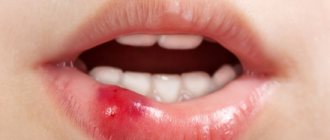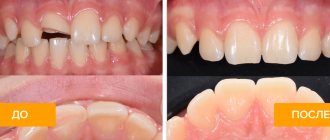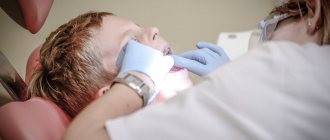Miramistin is a topical antiseptic. It contains the active ingredient miramistin and distilled water. This drug is actively used for diseases of the ENT organs, gynecology, dentistry, surgery and dermatology.
Miramistin is non-toxic and has no side effects, which is why doctors prescribe it to babies up to one year old. Sometimes it happens that a child accidentally drinks the medicine. Therefore, many parents are interested in the question of what to do when their child drank Miramistin.
Not to the pharmacist, but to the doctor!
When customers at a pharmacy ask a pharmacist to sell them “something for cystitis,” they often do not understand that they are doing it to their detriment. After all, this disease (if it really is one) can be different. For example, cystitis can be primary and secondary (that is, arising on its own or as a result of another disease). It can also be infectious and non-infectious. In one case, it is caused by microbes, and in another, inflammation of the bladder mucosa may be associated, for example, with allergies, medications, chemical or thermal damage. In addition, cystitis can be acute and chronic.
In each of these cases, treatment must be strictly individual. And even infectious cystitis can be treated with different drugs, depending on the microbe that caused the infection. An incorrectly chosen medicine or an incorrectly selected dose will lead, at a minimum, to ineffective treatment, and at maximum, to the development of antibiotic resistance in microbes. For this reason, it will be extremely difficult to subsequently cope with microbial inflammation. In addition, such pseudo-treatment can transform acute cystitis into chronic, which is much more difficult and expensive to identify and treat. Therefore, the first rule for cystitis is no self-medication!
First aid rules
First of all, don't panic. A small amount of the product will not harm the baby. If he drank more than 1 sip, Miramistin can provoke dysbacteriosis. In this case, you should give the child to drink more water and induce vomiting. After that, give him activated charcoal.
If more than half an hour has passed from the moment the child drank Miramistin until you realized it, call an ambulance.
To prevent this from happening, you should keep all medications out of the reach of children and do not leave children unattended for a long time.
It's time to start an investigation
But sometimes even treatment according to all the rules does not help. Therefore, if cystitis has not gone away within 7 days, it is necessary to undergo further examination, and, perhaps, begin to actively look for concomitant diseases. Among them may be, for example, other diseases of the genitourinary system (such as colpitis, bacterial vaginosis, pyelonephritis, urolithiasis, prostatitis in men), as well as genital infections (trichomoniasis, chlamydia). Patients with diabetes mellitus are also predisposed to cystitis (“sweet” urine promotes the growth of bacteria).
To identify the circle of “suspects,” the doctor must collect an anamnesis. And for this, you need to find out whether cystitis occurred for the first time or not, whether there was hypothermia before the exacerbation, whether all this was preceded by unprotected sex, whether the patient underwent aggressive treatment (chemotherapy, radiation therapy), whether he took medications and what kind, etc.
Depending on this, the doctor can refer the patient to a gynecologist and urologist, and also prescribe a list of necessary studies. As a rule, for chronic cystitis, the following are necessary: ultrasound of the pelvic organs and invasive cystoscopy (a tube with light is inserted into the urethra, and the condition of the mucous membrane is assessed).
Among the tests, you may need a urine sample according to Nechiporenko (helps to exclude or confirm the diagnosis of “pyelonephritis”) and the so-called two-glass urine sample (needed to make a differential diagnosis between cystitis and urethritis).
Compound
The instructions for use of this drug indicate that it contains two active components that have an active effect:
- Miramistin.
- Distilled water.
Since the drug is colorless and odorless, a large number of people have a logical question: is it possible to be poisoned by Miramistin. Experts say that this drug is completely harmless to human health, and its use will not lead to serious consequences, however, some groups of people are still at a certain risk.
Alarming symptoms
If you have come into contact with a chemical or vapor, you should immediately contact a clinic. Otherwise, the condition will only get worse. There is a high probability of internal damage if:
- Severe, persistent pain appeared in the mouth, throat, and along the esophagus.
- When you swallow, the discomfort intensifies, and you can’t even drink the liquid.
- There is vomiting, especially with blood.
- Profuse salivation began.
- It became difficult to breathe.
- The temperature has risen (due to intoxication).
- Swelling of the mucous membrane.
- The victim is either drowsy or, on the contrary, restless.
- Severe burns of external tissues, blisters.
What happens if you swallow Miramistin?
The instructions for using the spray say a lot that this is a very harmless product that is devoid of any side effects. Miramistin does not penetrate deeper than mucous surfaces and cannot harm organ tissues. Therefore, many believe that swallowing it will not bring any negative consequences. But this is not true - the drug should be used carefully.
Of course, if a small amount of the product gets into the stomach of an adult as a result of rinsing the nose or throat, this will not harm his body. But, if the overdose was significant, especially for a child, then this can cause intoxication.
Miramistin is aimed at fighting bacteria; once in the stomach, it destroys not only harmful, but also beneficial microorganisms. As a result, dysbiosis may develop.
Tags
packaging of the drug MiramistinAbout the drug, local preparations are used The drug represents a medicinal product in Any medicinal productUse of a medicinal product Search for drugs
nosequestionvaginaantibioticschildrenyeararticleslocalanswerhealthvitaminscosmeticsfemalecaretelabadooonutritioninstructionssummerthroatdoyourchildrenMoscowhygienesendtestweightlossproductspersonaldatacosmeticRussiamnouthtemperiodationsmonthsdropsbuyvideopediatricsAugust
Indications
This drug is used to treat a whole range of diseases. Miramistin helps cope with inflammation and infections that occur in children of different ages during the course of colds or viral diseases.
Diseases of the nose and throat are also treated with Miramistin - the spray is applied directly to the sites of the disease, is quickly absorbed into the body and has the necessary effect, relieving symptoms and getting rid of harmful bacteria.
Miramistin is also used for douching of organs responsible for the reproductive system. With the development of diseases such as thrush and inflammation of the mucous membranes, the drug has a calming effect, relieves inflammation and effectively copes with pathogenic bacteria that cause the development of the disease.
When using the drug to restore the condition of the mucous membranes, dryness in the affected area may be observed. That is why many patients are interested in whether thrush can be treated with Miramistin. Experts say that this treatment is absolutely safe, and dryness and other side effects disappear after discontinuation of the drug.
Overdose
Before appearing in pharmacies, the drug underwent detailed study in laboratories. Experts have prevented all cases of possible drug overdose and made it as safe as possible for use.
Nevertheless, many parents and simply patients are interested in whether it is possible to be poisoned by this drug. Experts unanimously say that the composition of the drug is thought out in such a way that poisoning is simply impossible if all existing instructions are followed.
Despite this, it is recommended to limit young children from the medicine, especially if it is stored in the home medicine cabinet for a long time. Moreover, when purchasing a medicine, pay attention to its expiration date, and if it is expired, do not use this medicine under any circumstances.
With uncontrolled use of Miramistin, mild intoxication may occur, which may include nausea, dizziness and general malaise. No other symptoms are observed, even with ingestion of liquid.
Nausea from taking the drug goes away a short time after ingestion and the unpleasant symptoms of poisoning disappear. Despite this, you should not experiment and risk your health - each body is individual and no one is immune from unexpected reactions.
Compliance with all instructions, the correct dosage and combination with other medications will quickly relieve you and your children from the disease, and poisoning and overdose will bypass you.
Miramistin is a long-known antiseptic; I use it as a disinfectant. The main active ingredient of Miramistin with the long name “benzyldemithyl ammonium chloride monohydrate” quickly and effectively fights various bacteria, fungi and viruses that cause inflammatory processes.
It can also be used in the treatment of small children. Often mothers wonder whether Miramistin can be swallowed and whether it will harm the child. However, its packaging allows you to avoid swallowing the drug. The bottle has a special nozzle with a sprayer, which allows you to inject the drug in small doses.
Release form
The treatment method prescribed by a specialist involves choosing one of the possible forms of the drug. Today it is available in two forms:
- A bottle with a nozzle for irrigation of mucous membranes and direct impact on the source of the disease. Also included in the kit is usually an attachment for using the drug in the treatment of reproductive organs.
- Another form of release is an ointment, intended primarily for the treatment of candidiasis formed in the oral cavity or on the mucous membranes of the external genitalia.
Side effects
Like any other drug, Miramistin has characteristics that may cause side effects. If used incorrectly or if the doctor's recommendations are not followed, the patient may experience a burning sensation and discomfort in the area affected by the medicine. In this case, you should immediately stop taking the drug and consult a specialist.
If the burning sensation becomes more and more intense, this indicates serious damage to the mucous membranes by chemicals, which can lead to irreversible consequences and serious disorders.
Note! When using a drug of proper quality and in full accordance with the instructions, the burning sensation goes away within a few minutes after the microflora of the mucous membranes is restored. The drug is not dangerous to the body and does not cause chemical burns even with prolonged use.
Video: doctor's reviews of the drug Miramistin.
Miramistin: properties of the drug
Description, composition and properties of the drug
Initially, this drug was intended for treating the skin and equipment of astronauts. In a confined space, viruses and germs multiply faster. In order to protect astronauts from exposure to various pathogenic microbes, an effective antiseptic Miramistin was developed in the 70s of the 20th century.
The undoubted advantages of the drug include high bactericidal activity. It also helps well with the herpes virus, the so-called cold on the lip. Easy to use, especially for small children who cannot rinse their mouths and spit out the liquid. The drug can only be used for a certain period of time. If you use it for a long time, not only pathogenic, but also beneficial bacteria contained on the mucous membranes will suffer.
Miramistin is considered a safe drug because it is not absorbed and does not enter the blood through the mucous membranes and skin.
Does not contain any dyes or flavors, which reduces the likelihood of allergies. The drug not only destroys germs and viruses, but also increases local immunity. It activates the work of the body's immune cells, allowing it to quickly cope with inflammation, and also stops the secretion of pus.
Miramistin does not irritate the skin and mucous membranes. There is no burning sensation or redness after use. Miramistin does not have a distinct taste or smell. When sprayed onto the membranes of the oral cavity, there is no gag reflex or discomfort.
Purpose
Indications for use
Miramistin is intended for disinfection of any surfaces, mucous membranes and skin. The list of indications for use is quite long. The drug is used for wound treatment in dentistry, surgery, gynecology, urology, and otolaryngology.









